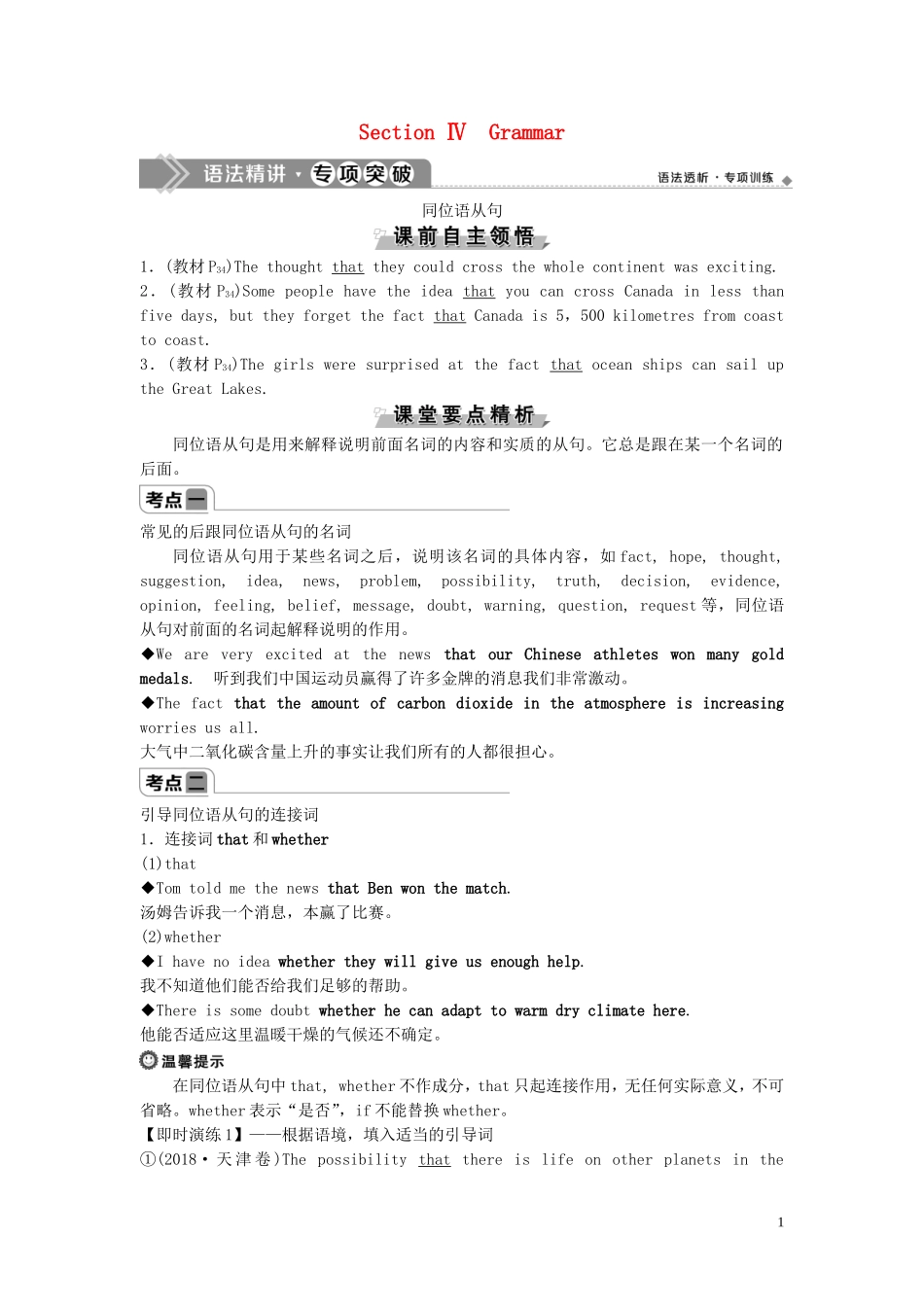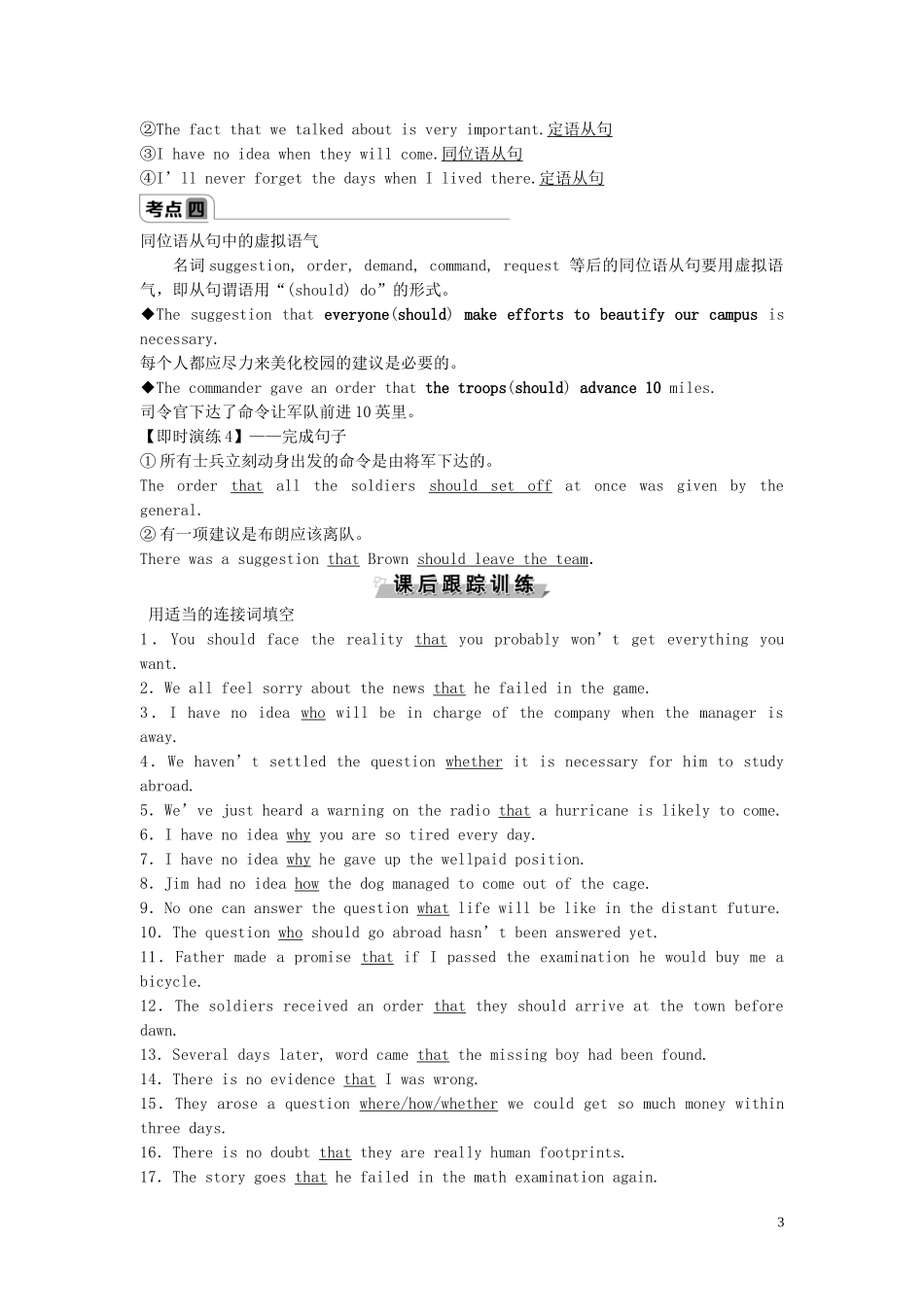Section Ⅳ Grammar同位语从句1.(教材 P34)The thought that they could cross the whole continent was exciting.2.(教材 P34)Some people have the idea that you can cross Canada in less than five days, but they forget the fact that Canada is 5,500 kilometres from coast to coast.3.(教材 P34)The girls were surprised at the fact that ocean ships can sail up the Great Lakes.同位语从句是用来解释说明前面名词的内容和实质的从句。它总是跟在某一个名词的后面。常见的后跟同位语从句的名词同位语从句用于某些名词之后,说明该名词的具体内容,如 fact, hope, thought, suggestion, idea, news, problem, possibility, truth, decision, evidence, opinion, feeling, belief, message, doubt, warning, question, request 等,同位语从句对前面的名词起解释说明的作用。◆We are very excited at the news that our Chinese athletes won many gold medals. 听到我们中国运动员赢得了许多金牌的消息我们非常激动。◆The fact that the amount of carbon dioxide in the atmosphere is increasing worries us all.大气中二氧化碳含量上升的事实让我们所有的人都很担心。引导同位语从句的连接词1.连接词 that 和 whether(1)that◆Tom told me the news that Ben won the match.汤姆告诉我一个消息,本赢了比赛。(2)whether◆I have no idea whether they will give us enough help.我不知道他们能否给我们足够的帮助。◆There is some doubt whether he can adapt to warm dry climate here.他能否适应这里温暖干燥的气候还不确定。在同位语从句中 that, whether 不作成分,that 只起连接作用,无任何实际意义,不可省略。whether 表示“是否”,if 不能替换 whether。【即时演练 1】——根据语境,填入适当的引导词①(2018· 天 津 卷 )The possibility that there is life on other planets in the 1universe has always inspired scientists to explore the outer space.②(2016·天津卷 )The manager put forward a suggestion that we should have an assistant. There is too much work to do.③He hasn’t mad...


